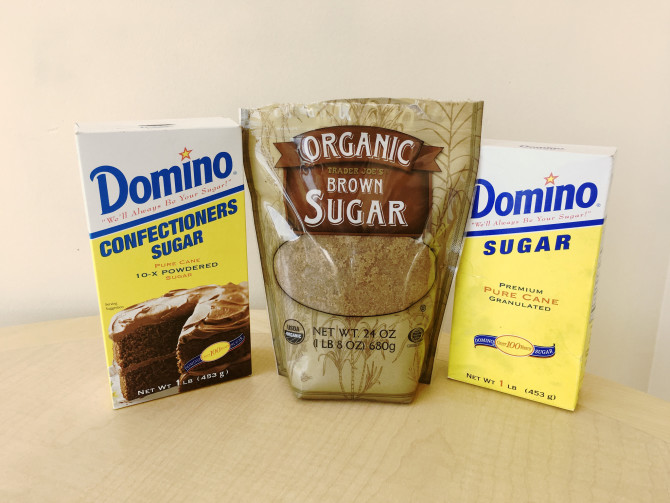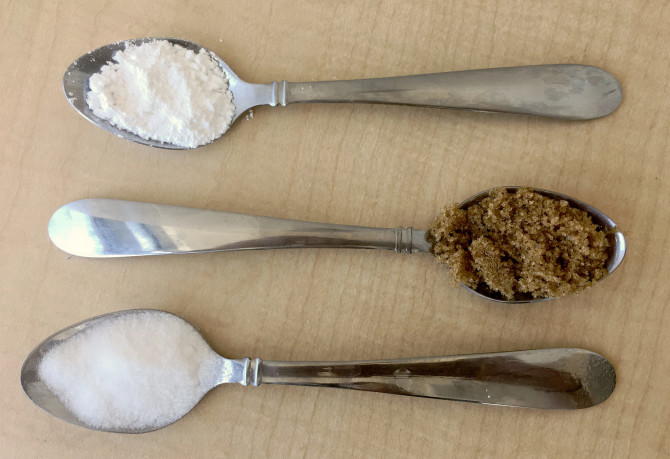What causes weight gain is constantly changing. One day carbs are okay, the next they are out. Every year there are countless fad diets, each one less successful than the next. For the longest time we were told to not eat fats, so low-fat foods became popular. What was the substitute for fat in these low-fat foods? Sugar. Now, sugar is the problem.
One of the biggest realizations in nutrition is that sugar, not fat, is the greatest danger to our health. This isn’t the first time this discovery has been made. In fact, this claim was made by John Yudkin, an Australian scientist and British professor of Nutirition, in 1972. Nutritionists and the Food Industry then set out to destroy his reputation – and they succeeded.
What was his claim?

Photo by Andrea Leelike
This all started with President Eisenhower’s heart attack in 1955. The US made a correlation between heart disease and fatty foods. Backing up this claim was Ancel Keys, a nutritionist at the University of Minnesota. Yudkin, who was the UK’s leading nutritionist at this time did not agree. He instead, saw a correlation between sugar consumption and heart disease as sugar turns into fat in the body. Carbohydrates (of which sugar is one) is also something new in the human diet compared to fat – so it seemed more logical to blame the increase in heart disease on the new addition to the human diet.
Yudkin warned in his book, Pure, White, and Deadly, that, “If only a small fraction of what we know about the effects of sugar were to be revealed in relation to any other material used as a food additive, that material would promptly be banned.” He claimed that it was sugar – not fat – that was more likely to cause sicknesses such as obesity, heart disease and obesity.
Why was his claim ignored?

Photo by Andrea Leelike
Ancel knew of Yudkin’s opposition to his theory and was publicly against it. He would call Yudkin’s research, “a mountain of nonsense.” He was also accused by Ancel of creating propaganda for the dairy and meat industries. Yudkin never responded to Ancel’s claims. The criticism didn’t stop there. The British Sugar Bureau called Yudkin’s claims “emotional assertations” and then the World Sugar Research Organisation deemed his book to be “science fiction”. The world was starting to be convinced of Ancel’s views
While Yudkin’s research was getting bashed, Ancel made his way up the ladder. He secured himself and his friends positions on the most influential boards in American Health. They were then able to fund research of likeminded scientists. After Ancel’s Seven Countries Study came back to find a correlation between the consumption of saturated fats and heart disease, the debate was over as everyone got behind fat being the cause. No one paid attention to the fact that he chose countries he knew would give him the results he wanted and ignored the ones that would go against his hypothesis.
What is the truth?

Photo by Andrea Leelike
Years after the Seven Countries Study, the lead Italian researcher, Alessandro Menotti, went back and discovered that there was a stronger correlation between sugar and heart disease than there was with fat. By this time it was too late. Even the Chairman of the American Dietary Guideline wouldn’t believe Yudkin’s claims, made in person.
The truth of the matter is that refined carbohydrates, such as sugar, knocks our metabolism off balance, messing with our self-regulation. Fat is used when glucose levels are running low in the body. Sugar and other refined carbohydrates break down into glucose in the body which results in the production of insulin. When this occurs, fat sells are no longer used for energy – it instead comes from the blood. When you have high levels of insulin for long periods of time the body then stores their fat, they gain wait and become fatigued.
What does this mean for us?

Photo by Andrea Leelike
Similar to the misconception about fat is one about eggs. For a long time it was believed that dietary cholesterol raised blood cholesterol. This led to eggs being needlessly stigmatized. Not only are eggs great for you, but the thought that they still contribute to a higher blood cholesterol was still believed by 54 percent of doctors in 2014.
Bottom line is: do your own research. Look at how scientists are conducting their studies and make your own decision on what you think is best. This is not to say that all science is wrong or that your doctors do no know what they are talking about. We now, as consumers, know that we have to take a closer look at what nutritionists and scientists are telling us and why. It is very easy for the wrong opinion to become a popular and widely accepted truth. The majority opinion was wrong about fat and sugar; they have been wrong before and they will be wrong again.


